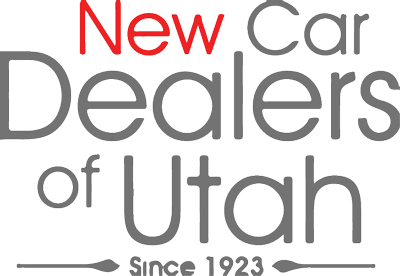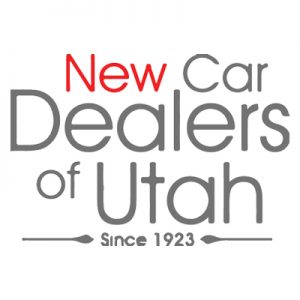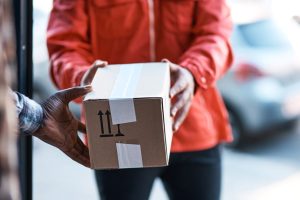
Derek Miller is the president and CEO of the Salt Lake Chamber and is a native Utahn. He earned an undergraduate degree from BYU in international relations. In addition to graduating from BYU’s J. Reuben Clark Law School, he also holds a joint degree, Master of Public Administration, from the Romney Institute of Public Management. After graduation, Derek was a management consultant with Arthur Andersen in Washington, D.C., for its public sector clients. He then practiced law as legal counsel in the U.S. House of Representatives.
Derek and his family came home again eight years after leaving the state, but he continued his public service. Derek worked for Gov. Huntsman in the Governor’s Office of Economic Development and then as chief of staff for Gov. Herbert. He returned to the private sector after an additional four years.
Before the Salt Lake Chamber, Derek was the CEO of the World Trade Center Utah. This nonprofit group helps companies expand their global market and is the Salt Lake Chamber’s sister organization.
For more information, refer to 2021 Legislative Priorities: Salt Lake Chamber 2021 Public Policy Guide by the Salt Lake Chamber. An online copy is available at https://slchamber.com. Select the Public Policy tab for the 2021 and upcoming 2022 Legislative Priorities guide, which will be released in early January.
The 2021 policy guide lists many subjects such as the business climate, labor and employment and education. All of them mattered, but did some matter more than others in 2021?
The short answer is yes. Although many industries are doing quite well, some industries have been impacted much harder by the pandemic. They include travel, tourism and hospitality industries.
We are grateful Utah had the highest uptake for businesses receiving PPP loans because those loans kept businesses alive, and most are forgivable under most circumstances. But loans are not a long-term solution. No amount of money the federal government can spend would replace a fully functioning economy. For many businesses that are suffering, the only long-term answer is to become fully and safely functioning again. Downtown Salt Lake City is an excellent example of this. We need people back in downtown offices. We also need people to go to cultural events and art venues at places like Symphony Hall and Eccles Theater.
Workforce development has a short-term goal and a long-term purpose. Having an available workforce of trained, skilled workers was a concern even before the pandemic; any business owner would tell you that their No. 1 challenge is finding enough qualified people. Unfortunately, the pandemic has caused a drop-off in students moving from secondary education to higher education. But as a state or as an economy, we can’t afford to have a whole segment of our population hit the pause button for a couple of years.
Many companies struggle to hire people with the necessary qualifications even though 50,000 people are unemployed. That is why we need short-term and long-term workforce training. We have a short-term opportunity to bridge the skills gap by focusing on workforce training, but workforce development will continue to play a role in our long-term prosperity.
What do you think the lingering effects of the pandemic will be on small businesses?
Small businesses are 90% of Utah’s economy. They quantifiably form the state’s backbone and engine.
The PPP loans have helped many small businesses keep their doors open from the beginning of the pandemic. The Salt Lake Chamber also created a program, Stay Safe to Stay Open, and the state asked the chamber to take it across the state. The chamber also had a triple takeout challenge to support local restaurants by getting takeout three times a week. (For my family, my wife suggested we should get takeout six times a week.)
In terms of lingering effects, success in the current environment has been defined by surviving. Businesses had to innovate and adapt. Many companies had already planned to make changes, but the pandemic sped up their plans. For example, one of the downtown restaurants had already been talking and thinking about making a new business line of prepackaged meals that would be available online. They had to act on that when the pandemic started.
How many small businesses have closed in Utah as a result of COVID compared with the national picture? Is it as high as one in four?
About a third of the businesses we’ve talked to have said they closed at least one location and consolidated. But look at the good news: more than 50,000 businesses received PPP loans. Zions Bank and Mountain America Credit Union led the nation in the number of loans they closed, respectively, for banks or credit unions.
How do you think Governor Cox’s emphasis on rural Utah affects Salt Lake City?
I don’t think economic success has to be a zero-sum game where one part of the state takes precedence over the other. Instead, think of the economy as a garden. I can have a good garden, and my neighbor across the street can have one, too. Anyone who plants good seeds, provides them with soil, water and sunshine and tends the garden will have good results.
You will see the right outcome if you do the right things, and if rural parts of the state achieve economic success, their success will not be at the expense of Salt Lake City or the Wasatch front.
Do you have any suggestions for small businesses in 2022?
- Every business needs to have a digital transformation strategy. The pandemic accelerated existing trends, and companies have had to move some things online that they’d already been thinking about.
- Don’t be so focused on the present that you lose sight of tomorrow. Under normal circumstances, businesses work hard every day to be successful, and sometimes it just seems easier to be satisfied with keeping your head above water. That is truer than ever with the pandemic’s challenging circumstances, but it can cause you to miss things. Do some strategic thinking. What is going to affect your business tomorrow and the next day?
- Apply what you have learned to help you prepare for the future. We know more now than we knew last year, and we’ve learned some important lessons through the pandemic, but that doesn’t mean we are smarter. Using knowledge to improve is what makes you smarter.
- Businesses are so focused on survival. It can be easy to neglect customers, but that is the worst thing to do. Please make time to build personal connections to your customers, whatever that looks like for them. Your customers will remember how you treated them during the pandemic, for better or worse. Strengthening customer relationships will give you customers for life.
- Sometimes going through a challenge helps you get back to the basics of innovating and adapting. You don’t have to strip away the extraneous stuff when times are good, but sometimes the best thing you can do when facing challenges is refocus on your core mission and go back to the basics.
If a business owner could not implement all of your listed suggestions, which ones are the most important?
That depends on the business. No one can implement every suggestion, and only you know what would work for your circumstances. Review the list, customize it, and decide what makes the most sense for you and your company.
Which programs are available locally to help small-business owners?
Things are changing faster than usual, and keeping up with all the changes can be a full-time job in and of itself. Fortunately, the local chamber of commerce’s job is to be aware of all the programs and how they might match up with your business. Talk to the local chamber of commerce instead of trying to navigate all the private programs yourself.
I also encourage you to get involved with us or your local chamber of commerce. Although it is nice when you can take advantage of a place like Utah and its very strong business environment, it is even better to help create that business environment. Pay forward the help you get by focusing on other businesses’ success, too.










